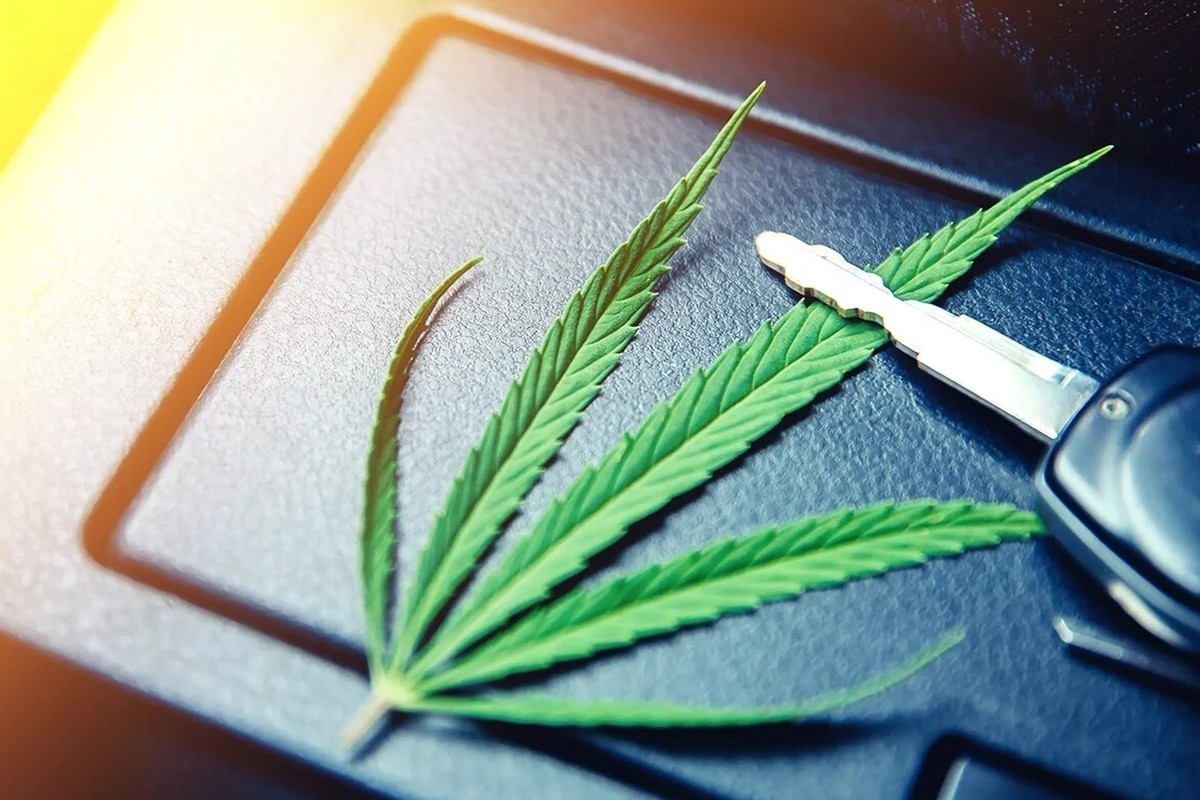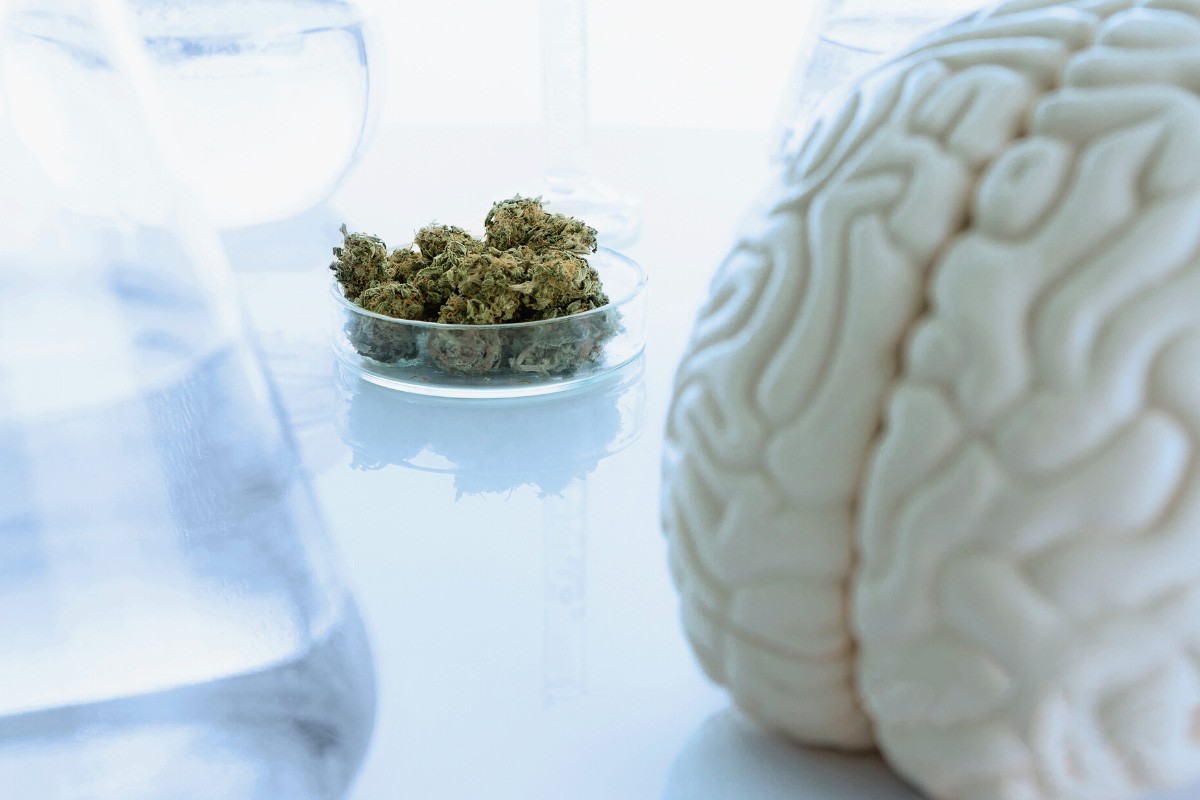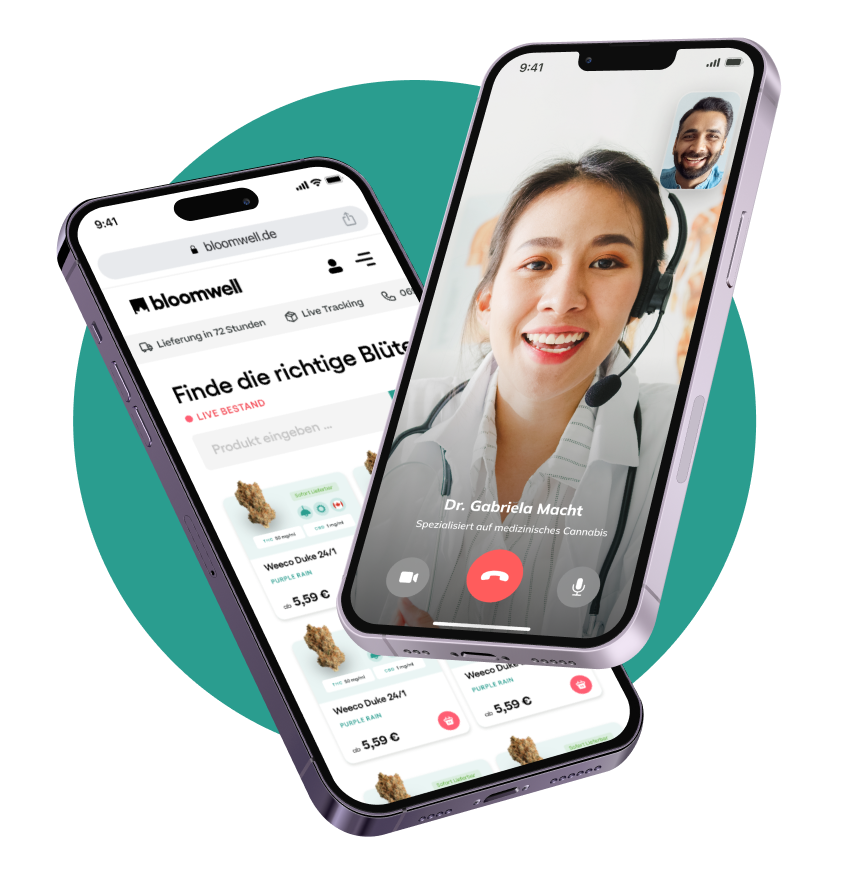Cannabis and driving, is that allowed? In the following article we explain the current legislation around the topic and what you have to pay attention to as a patient.
Is it allowed to drive under the influence of THC and CBD?
Anyone who drives under the influence of cannabis commits a misdemeanor and must expect severe penalties. This applies regardless of the amount of cannabis consumed, because the limit here is already at 1 nanogram tetrahydrocannabinol (THC) per milliliter blood serum. Detection is still possible in urine weeks after consumption, so even consumption that occurred weeks ago is still relevant for driving.
Anyone caught driving with cannabis will be fined and must expect to have their driving license revoked, which can only be regained after a certain period of time by passing a successful medical-psychological examination (MPU).
THC is the active ingredient contained in cannabis which, due to its psychoactive effect, can produce a state of intoxication that can significantly impair driving ability and therefore prevent safe traffic participation. The situation is different with the active ingredient cannabidiol (CBD), which is also contained in cannabis and is said to have various properties (including anti-inflammatory), but does not have any intoxicating effect. Taking pure CBD preparations is not illegal and is also permitted before driving.
Medical cannabis usually contains both CBD and THC. Here the legal situation is not so simple.
Current legal situation
The law allows patients who take medical cannabis prescribed by a doctor to participate in road traffic, even as drivers – provided they are able to drive the vehicle safely. This is the case if the intake reliably follows the respective prescription, according to the assumption. There is no general ban on driving for patients who take medical cannabis.
This was also confirmed by the Düsseldorf Administrative Court in a ruling from 2019 (VG Düsseldorf, ruling dated October 24, 2019, 6 K 4574/18). In this case, a cannabis patient had filed a lawsuit against the decision of the driving license authority, which denied the man a renewed issuance of his driving license due to his treatment. The court ruled in favor of the plaintiff and distinguished between the legal (medically motivated) and illegal use of cannabis. According to the current legal situation, anyone who consumes illegal drugs is not suitable for driving. According to the VG Düsseldorf, this does not apply to cannabis patients. Rather, their fitness to drive would depend on whether
- the drug is taken reliably in accordance with the doctor’s prescription
- no permanent impairment of performance is observed
- participation in road traffic already poses a risk to road safety due to the underlying disease (such as chronic pain or nausea)
- the patient demonstrates responsible use of the drug.
If these conditions are met, fitness to drive can be considered given, according to the court’s decision [1].
However, the situation is different if driving shows signs of failure that can be attributed to cannabis use. In this case, the patients are liable to prosecution and must expect appropriate sanctions such as a severe fine and the withdrawal of the driving license for at least 6 months.
To prevent problems during traffic controls, patients who take medical cannabis on prescription should always carry a corresponding certificate from their doctor. Alternatively, a copy of the current prescription on which the cannabis was prescribed can also be presented.
Who is allowed to drive under the influence of cannabis?
In order to be allowed to drive under the influence of medical cannabis, the patient must be able to drive the vehicle safely, i.e. without drug-related failure symptoms. Such failure symptoms are possible after taking cannabis, and the risk of this is particularly present during the initial acclimatization and adjustment phase, but also when the dosage is changed. It can also become dangerous if the preparations are basically dosed too high or if the person consumes other strongly effective substances at the same time, such as alcohol.
However, the dosage of medicinal cannabis is not always very easy, this is especially true for cannabis flowers that are available loose, which sometimes differ considerably in their ingredients and, depending on the amount of active ingredient they contain, must be dosed correctly to within 0.1 grams. This makes careful prescribing all the more important, including precise information on the prescribed material, the dosage form and the individual doses prescribed in each case and the maximum permissible daily dose.
In addition, physicians must inform their patients that undesirable side effects and impairments may occur – especially at the beginning of treatment – which is why they should not drive a car (or any other vehicle) during the initial period of treatment. However, the responsibility lies with the patient himself. Every person who actively participates in road traffic must ensure that he or she is fit to drive and, if there are signs of impaired driving ability, prefers to leave the car at home.
Even if the use of cannabis for medical reasons is handled somewhat differently before the law than “recreational use”, you should keep in mind: THC-containing preparations can always impair attention and reaction capability and thus also driving ability – regardless of the reason for their use. In addition, it is almost impossible to concretely determine the actual influence of the active substances contained in medical cannabis on driving ability. The individual differences between patients, the individual correlations between the THC concentration in the blood and the amount of cannabis taken are too great. The effects of the ingredients and possible side effects with the same amount of cannabis can also vary greatly between individuals.
If you do not feel 100% capable of driving during cannabis therapy, it is better to avoid driving when in doubt. You should ask yourself the question about your fitness to drive not only at the beginning of the therapy, but before every trip and act responsibly in terms of your personal and general road safety.








